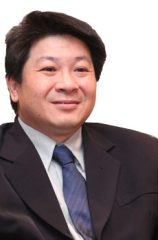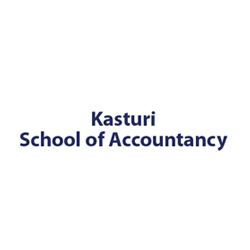In conversation with
Mr Alan Yeo
CEO | Malvern Kasturi International Academy

ASEAN Education Spotlight: What is the meaning of education to you?
Alan Yeo: Education is not only about implanting knowledge. It is also a process of guidance. Accountants must be accountable.
Andrew Pang : Education is not only imparting knowledge, but also building character, professionalism and ethics, which is especially important within accounting which requires diligence and accountability.
Where did the passion for teaching come from and can you recall why this is what you wanted to do?
Alan Yeo: I started teaching in 1983. Originally I was looking for a job to support my lifestyle, but what has kept me going since for the last 30 years has been the passion.
Andrew Pang: I started lecturing in 1991 – at which time I was still doing my ACCA but my college requested me to do some tutorials for lower level students. I maintained this while working for my firm after graduation to supplement my income because payment in those days was very low. Since then I have found passion in sharing my research and knowledge with younger generations.
We want to be able to tell our readers a bit more on the history of Kasturi, how was the idea born and how did it all start?
Alan Yeo: We were both in the lecturing industry and having heard of each other we decided to undertake something more challenging together. We started to set up our institution away from the College Triangle of Lebuh Ampang in 2002, which was a bold challenge and we were worried the students would not follow, but we built a winning “A-Team” and within two years we managed to acquire over 1,000 students.
Andrew Pang: When we started we were ranked number three in Kuala Lumpur, but within a year and a half we were number one with 1,800 students, this is between January 2003 and July 2004.
I feel this was achieved because of our marketing and fee strategy. When we became successful we were under pressure from competitors to increase our fees, but our aim is quite clear, which is to provide education with affordability fees. We have continued that policy to this day.
Can you tell us about the transition from Kasturi to Malvern International Academy, how are the two connected?
Alan Yeo: We are part of a group that started with Malvern House in the UK, so we have a sister tuition arm called Kasturi that we originally wanted to act as a feeder institution, but this did not work because of confusion over the names. Now we are known as Malvern International.
Andrew Pang: Originally in the 1980s we were Mahkota College, which means “crown” in Malay. Then in the 1990s the name was changed to Kasturi, which is a representative of the royal family flower.
So we joined Kasturi College to start our accountancy school in 2003, Kasturi School of Accountancy. In 2010 Kasturi acquired Malvern House in London which was a language house; after that we decided to change our branding to Malvern while keeping the name Kasturi School of Accountancy.
Kasturi are owned by Asian Education Consortium ( AEC) which is a listed company on AIM London – we have operations in Singapore, London, Cyprus, Oman and Malaysia. Only the Kuala Lumpur campus is named Kasturi School of Accountancy.
This report is about uniting ASEAN, industries using ASEAN as a hub and opening partnerships with higher education institutions such as yours and institutions from the west partnering with institutions in ASEAN. How are you preparing your future accountants for these changes, how do you think the new compliances with ASEAN will affect the accounting and finance system in Malaysia?
Alan Yeo: We are running the ACCA external programme. Our course is different to most in that a lot of other programmes involve speculating on what would be the best ways to improve legal standards. We focus on teaching our students what the law is at the time as a matter of importance. We like most universities also focus on soft skills which are very important professionally.
Andrew Pang: Ten years ago there was a call for accounting standards around the world to converge. Now standards are becoming more similar, we can teach an ACCA syllabus which focuses on International Accounting Standards (IAS), so it is not so much of a problem.
The main differences in accounting standards are in reporting and disclosure requirements and tax – so the convergence of accounting standards is not a new challenge. It is something we have been facing for the last 20 or 30 years.
We live in times that change so rapidly, how do you define the role of an accountant in the present day business world?
Alan Yeo: Nowadays people expect their accountants to act as a crystal ball – so the expectations are much different. An accountant is more of an advisor than a bookkeeping technician.
Andrew Pang: These days, accountants are expected to be able to provide input not only on business and accounting matters but also to marketing and business strategies. Accountancy courses have changed their syllabus content to include business consultancy rather than just focusing on accounting. Recording and bookkeeping can now be computerised with just technicians to do the work, so the position has had to evolve.
Malaysia is known as the Islamic finance capital, which is something the country takes great pride in. However it Is important to create transparency in everything. We discussed ethics and human governance – in this regard, how do you ensure and promote the concept of ethics to your students here at Kasturi?
Andrew Pang: ACCA take professional ethics very seriously, all students have to take a three hour online ethics module before they can graduate. Students have to be able to comment on the ethical implications and justifications of a given scenario. As lecturers are also aware this is an important part of the syllabus, inside and outside of the classroom we place a lot of emphasis on ethics.
We spoke about internationalisation briefly; you are focused on business, finance, IT and accounting – what are the plans for the future, what expansion and partnerships are you planning within ASEAN and the West?
Alan Yeo: We are looking to partner with foreign universities to expand our programmes. We have however run into problems locally. We had planned a six month MSc top up programme for our graduates with a UK university. The UK university gave us the green light but the local ministry said we cannot do a professional and academic qualification together.
We are always looking out for how expansion can add value for our students and post graduate courses are a good way to do that.
Andrew Pang: Malvern’s vision is to be a one stop centre from secondary tuition to post graduate degrees, so we are looking for ways to provide post graduate degrees such as CFA or MSc.
Currently we work with thirteen universities in China, but we are not looking at ASEAN countries because it is not cost effective. Our model is expertise sharing whereby we enter joint ventures with Chinese government universities in which they provide hardware and facilities and we provide soft skill support to lecturers and administrators. We have minimised our risk by avoiding fixed costs but working for each other’s mutual benefit.
Now we are the largest foreign provider of ACCA programmes in China.
What do you think it will mean for your students’ employability with ASEAN now being established?
Andrew Pang: Sorry to say that some countries do not have the advantages that we do. In Malaysia we do not have an employability problem in finance, for instance because we speak many languages, as opposed to China who are generally limited to Chinese and English.
Most multinationals in ASEAN prefer to employ Malaysians because of our ability with languages. Many of our graduates go to work internationally upon graduation. We also provide top notch ACCA degrees which is the largest accountancy body in the world so that is something that makes our students more employable. I am confident that our employability is above 90%.
Do you have many international students or are they mostly from Malaysia?
Alan Yeo: Mostly local students, we have less than 10% international students.
Andrew Pang: We are running an English course so our international student population should be higher but they are not because our fees are not high enough for us to pay the commission to agents to bring in foreign students.
We welcome foreign students, but we do not actively recruit them because of the administrative difficulties surrounding visas and documentation.
I would like to discuss the role of Malaysia in bringing ASEAN together and accepting the role of being one. What is Malaysia’s role within that and can it be successful?
Andrew Pang: The Malaysian government realised around ten years ago that we cannot rely on our agricultural success and petroleum in the long term, so they decided to move to service areas like banking, tourism and education. We have an edge over other ASEAN countries in education because Malaysia is a role model for Islamic countries, so Middle East and North African countries like the idea of sending students to Malaysia.
With having a 26% ethnic Chinese population that makes it appealing for Chinese students too.
Since starting Kasturi, what achievement has made you most proud in your career?
Alan Yeo: We are proud of all of our achievements, especially the team we have assembled and have grown with us from the start, that they are all happy and we fit together well.
Andrew Pang: We are happy that we have made Kasturi a well known brand name locally and internationally. Malaysia’s ACCA office recognises us as a key player and the industry leaders recognise our graduate’s quality, not only here but in China as well.”
